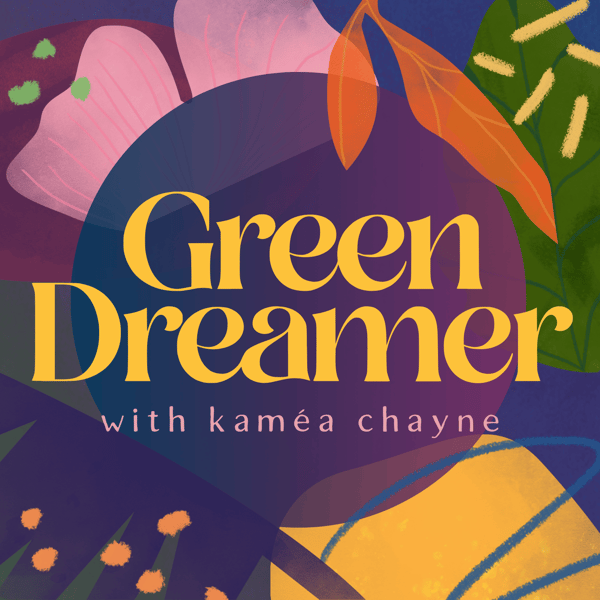Lindsay Naylor: Who does "fair trade" really serve and benefit?
Green Dreamer: Seeding change towards collective healing, sustainability, regeneration
kaméa chayne
4.9 • 661 Ratings
🗓️ 8 March 2024
⏱️ 46 minutes
🧾️ Download transcript
Summary
Who does “fair trade” as a certification program speaking to conscious consumers really serve? How might it fall short of what it promises—supporting farmers and producers from falling into the deepest pits of poverty while paradoxically also keeping them at a certain level? What does the process of rebuilding power entail for communities who are grappling with local inequalities within a larger global corporate agricultural chain?
In this episode, we converse with author and geography Lindsay Naylor as she delves into the daily acts of resistance and agricultural practices by the campesinos/as of Chiapas, Mexico, in their pursuit of dignified livelihoods and self-declared autonomous communities. Drawing from her fieldwork, Naylor explores interaction with fair trade markets and state violence within the context of the radical history of coffee production.
Transcript
Click on a timestamp to play from that location
| 0:00.0 | Hey there, this is your host, Kamea. I hope you had a restful holiday season and that your start to this new year has been all of the things that you might need during this time. |
| 0:11.7 | As we move deeper into 2025, first of all, I'm so excited to share the many conversations we already have in the pipeline for you this season. |
| 0:20.5 | So definitely stay tuned |
| 0:22.2 | and make sure you're subscribed to my Substack newsletter, which you can find at camilla.substack.com. |
| 0:29.9 | And I also just want to share that our call for your direct support continues as well, because |
| 0:34.7 | independent media is more important than ever, and every contribution, |
| 0:39.4 | no matter how small or large, really helps us out so much. So if you haven't already, we invite |
| 0:45.0 | you to join our Patreon or Substack membership or contribute a gift of any amount at |
| 0:50.5 | greendreamer.com slash support. If you need a planner for the new year, you can also check out |
| 0:56.5 | our fundraising green dreamer planners at greendreamer.com slash shop. Thank you so, so much for |
| 1:03.7 | whatever forms of support you're able to share with us. For now, enjoy the show. |
| 1:10.3 | One of the more important things for me to think about was how are these people trying to live well? |
| 1:16.3 | Like, what are the strategies that they're putting into place? |
| 1:18.8 | Not necessarily to have power over other folks, but to distribute the power relations in the community so that that everybody is working towards what they |
| 1:29.5 | call dignified livelihoods while they're still in resistance. |
| 1:32.2 | And that is incredibly important. |
| 1:40.4 | You're listening to Green Dreamer, and I'm your host, Kamea Shane. |
| 1:44.9 | Today we are speaking with Lindsay Naylor, who uses climate change, food, and agricultural |
| 1:50.1 | production as a lens to explore human environment interactions and geopolitical conditions of development. |
| 1:57.3 | As a feminist political geographer, she's primarily interested in investigating the multi-sided geo of geopolitics |
| 2:05.3 | and examining how it is written unevenly across space, place, and bodies. |
| 2:11.5 | Her book, which we will draw upon today and explore with, is Fair Trade Rebels, |
... |
Please login to see the full transcript.
Disclaimer: The podcast and artwork embedded on this page are from kaméa chayne, and are the property of its owner and not affiliated with or endorsed by Tapesearch.
Generated transcripts are the property of kaméa chayne and are distributed freely under the Fair Use doctrine. Transcripts generated by Tapesearch are not guaranteed to be accurate.
Copyright © Tapesearch 2025.

